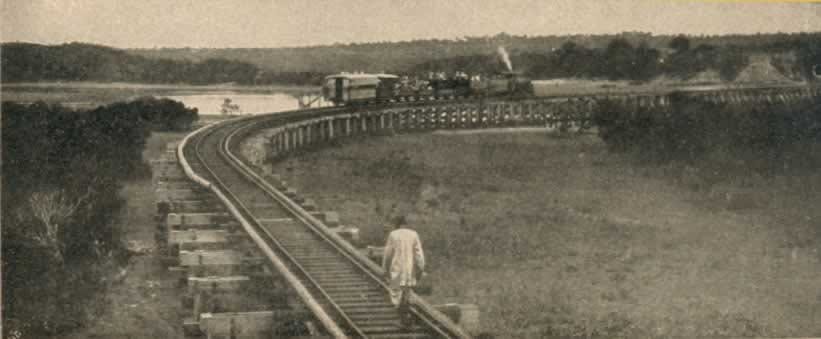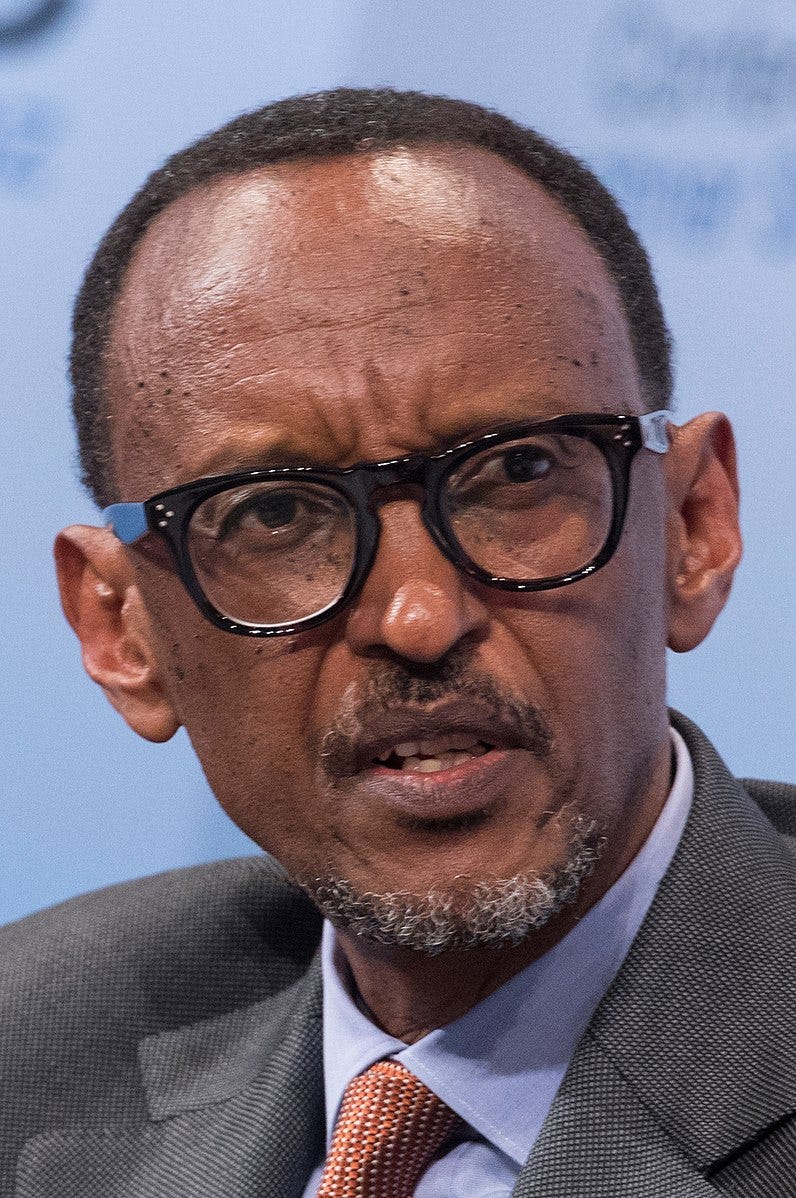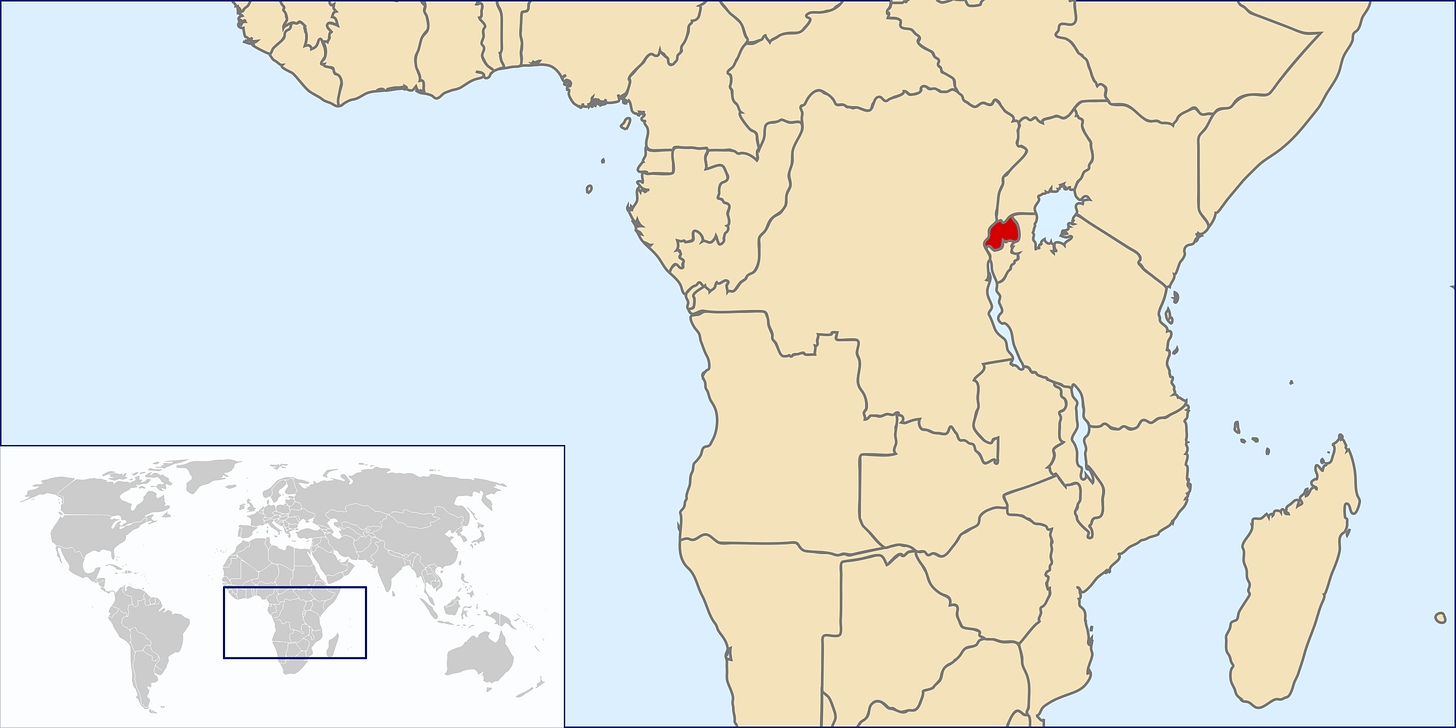🔅 The Prolific Running Man: The Life and Legacy of Biyi Bándélé
Rwanda's Kagame Coasts to Victory in Unsurprising Election Outcome
Image of the Day

Spotlight Stories
The Prolific Running Man: The Life and Legacy of Biyi Bándélé
Biyi Bándélé was a man who never stopped running. From his early days winning writing competitions in Nigeria to his sudden death in 2022, Bándélé was a creative force to be reckoned with.
He hit the ground running in London in 1990, publishing his first novel just a year later. And boy, did he keep running! Novels, short stories, plays, films, TV, photography—Bándélé did it all. He was like the Energizer Bunny of the creative world.
What set Bándélé apart was his penchant for historical subjects and his ability to infuse even the most tragic stories with a sense of humor. Take his novel Burma Boy, for example. It's a war story and a coming-of-age tale rolled into one, told in the form of a Hausa folk tale. And the protagonist's name? Ali Banana.
But Bándélé's magnum opus may be his posthumous novel, Yorùbá Boy Running. Inspired by the true story of his great-grandfather, who was captured by slave raiders and eventually became the first black bishop in the Anglican Church of England, the book is a testament to Bándélé's skill as a writer and historian.
The opening section of Yorùbá Boy Running is a masterclass in wit, humor, and dramatic timing. Bándélé paints a vivid picture of life in pre-colonial Nigeria, complete with a drunken king, sycophantic courtiers, and a haughty emissary who gets more than he bargained for when his partner is beheaded by the royal barber. It's like something out of a Wole Soyinka play:
Sadly, Bándélé's career was cut short by his sudden death in 2022. But what a career it was! From his early days in Kafanchan, Nigeria, to his final days putting the finishing touches on his film adaptation of Wole Soyinka's Death and the King's Horseman, Bándélé never stopped running towards a distinguished future.
We may never know what other stories he had in him, but we can be grateful for the ones he left behind. Biyi Bándélé was a true original, a man who could make us laugh, cry, and think, often all at the same time.
We leave you with a fascinating extract from Yorùbá Boy Running:
“Ibn Ayuba,” Ibn Saidi said, “where’s Ibn Ayuba?”
“Your brother-emissary,” the akogun told him, “desired a shave.”
“A shave?” Ibn Saidi swallowed hard, his throat suddenly gone dry.
“Yes, a shave,” said the akogun. “Fortunately for him, the royal barber was at hand. He stropped his razor, flicked it this way,” he demonstrated, “and that way; just like his father and his father before him. And right before our very eyes, Ibn Ayuba’s beard was gone … So, unfortunately … was his head.”
Rwanda's Kagame Coasts to Victory in Unsurprising Election Outcome
In a shocking turn of events that surprised absolutely no one, Rwanda's President Paul Kagame has won 99% of the vote in the country's latest presidential election. It looks like Kagame's three-decade grip on power isn't loosening anytime soon.
Kagame's opponents, Frank Habineza of the Democratic Green Party of Rwanda and independent candidate Philippe Mpayimana, collectively managed to scrape together less than 1% of the vote. It's almost as if they were just there for show.
But let's be real – this election was about as competitive as a game of one-on-one basketball against a toddler. Kagame's two strongest critics were blocked from running for office, leaving the 66-year-old president virtually unopposed.
The People Have Spoken
Still, Rwandans turned out in droves to cast their votes. Election authorities reported that 9.5 million people were registered to vote in the country of 14 million, and it seems Kagame does indeed maintain strong support across the country.
Nevertheless, like many of his fellow African leaders, Kagame has found a clever way to extend his rule – by simply changing the term limits. In 2015, Rwandans voted in a referendum to lift the two-term limit, paving the way for Kagame to potentially stay in power until 2034.
When asked about his extended mandate, Kagame told journalists, "The ruling party and Rwandans have been asking me to stand for another mandate. At a personal level, I can comfortably go home and rest." But what are the chances of that happening?
While Kagame has overseen transformative growth in Rwanda since the end of the genocide in 1994, some human rights groups have raised concerns over the restrictions on freedoms in Rwanda, including the alleged suppression of dissenting voices among civic groups and the media.
Meanwhile, the region is facing heightened fears of insecurity, with rebels known as M23 fighting Congolese forces in neighboring eastern Congo. U.N. experts have reported that between 3,000 and 4,000 Rwandan forces are fighting alongside M23, although Rwanda accuses Congo's military of recruiting fighters who were among the perpetrators of the 1994 genocide.
Kagame's landslide victory may have been predictable, but the challenges facing Rwanda and the region are anything but.
Food for Thought
“A child is a child of everyone."
— Sudanese Proverb






